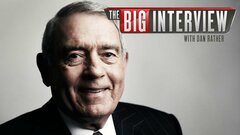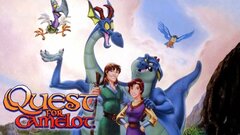Steve Perry

Singer • Songwriter
Birth Date: January 22, 1949
Age: 75 years old
Birth Place: Hanford, California
Bands: Journey
One of the most powerful voices in '80s-arena rock, Steve Perry's clarion vocals brought both strength and sensitivity to a string of hits by the band Journey, including "Don't Stop Believin'," "Who's Crying Now," "Open Arms" and "Faithfully," as well as such solo hits as "Oh Sherrie" and "Foolish Heart." Perry's presence as both vocalist and songwriter transformed Journey from a little-known progressive rock band to a mainstream rock band on par with Foreigner or Boston, complete with the sort of rallying anthems and heartfelt ballads that filled arenas throughout the world.
But following back to back hit albums in Escape (1981) and Frontiers (1983), Perry began to distance himself from Journey, first by striking gold with his solo debut, Street Talk (1984), and then by attempting to exert a more controlling hand in the band's fortunes. The group came to loggerheads after the release of 1986's Raised on Radio, after which Perry went into retreat for nearly a decade before reuniting for the wildly successful Trial By Fire (1994). But again, Perry and the band found themselves at odds, this time over a proposed hip replacement surgery that would allow him to tour behind the album. He departed again soon after, this time apparently for good. While the band soldiered on with a variety of Perry soundalikes, the core of their library with him proved to be one of the most lucrative catalogs in pop history, which underscored Perry's undeniable importance to one of rock's biggest acts.
Born Jan. 22, 1949 in the San Joaquin Valley city of Hanford, CA, Stephen Ray Perry was the son of Portuguese parents Ray Perry, a singer and radio station owner, and his wife, Mary. He developed an interest in singing after hearing Sam Cooke on the radio, and pursued various musical avenues as a high school student in Lemoore, CA, and later at the College of the Sequoias, where he briefly sang in the choir. Determined to make his way as a vocalist, Perry headed to Sacramento, where he formed the band Ice with future producer and executive Scott Mathews, who was at the time still a high schooler. The band traveled to Los Angeles to record an album in 1972, but the project was shelved, prompting Perry to find work in order to support himself. For a period, he sang on various film and television advertisements while logging time in a variety of non-starting bands.
A second attempt to land a recording contract came as part of the band Alien Project, but the group fell apart following the death of its bassist in a car accident. Dejected, Perry returned to Lemoore with the intention of giving up his dream of a singing career. However, he was soon contacted by Walter "Herbie" Herbert, who managed a struggling San Francisco progressive rock band called Journey.
Journey had been treading water professionally since Herbert, a former manager for Santana, formed the group around ex-Santana members Neal Schon and Gregg Rolie in 1973. Despite the pedigree of their lineup and a pair of albums for Columbia, the band had enjoyed little success. But after hearing a demo by Alien Project, Herbert contacted Perry with an offer to join the group. He was officially brought aboard as Journey's lead singer in 1977, with his album debut arriving a year later with Infinity (1978). Perry's arrival signaled a sea change in the band's sound, as evidenced by such mainstream-oriented tracks as "Wheel in the Sky" and "Lights," an affectionate tribute to the Bay Area that reached No. 68 on the pop singles chart. By their next album, Evolution (1979), Perry had writing or co-writing credits on nearly every song, including their first Top 20 hit, "Lovin', Touchin', Squeezin'." The band's lineup changed once again with the release of their Top 10 album Departure (1980), with Rolie replaced by Jonathan Cain of The Babys. Cain would become Perry's most significant writing partner, penning both the No. 2 single "Open Arms" and "Who's Crying Now" with him, while also co-writing the enduring anthem "Don't Stop Believin'," all of which were featured on Escape (1981) Journey's most successful studio album. The release of Frontiers (1983), which featured the Cain-penned "Faithfully" and two Cain-Perry singles, "Separate Ways (Worlds Apart)" and "Send Her My Love," confirmed their status as the leading arena rock group of the decade.
Journey took a brief hiatus in 1984 following a stadium tour in support of Frontiers. Perry took advantage of the break by recording his first solo album, Street Talk (1984), which scored two Top 20 hits in "Oh Sherrie" and "Foolish Heart." He subsequently followed it with participation in the We Are the World (1985) album, which also featured another solo Perry single, "If Only For the Moment, Girl." The success of Street Talk gave Perry the leverage to take a more controlling hand in the production of Journey's next album, Raised on Radio (1986). Though the record was another sizable hit, it was also fraught with challenges for the band, not the least of which was Perry's frequent absence in order to visit his ailing mother, who eventually died during production of the album. The lack of cohesiveness among the group members may have resulted in the somewhat lower chart placement of its four singles, including "Girl Can't Help it" and "I'll Be Alright Without You," most of which hovered at the lower end of the Top 20. Citing emotional exhaustion, Perry was unable to commit to tour dates in support of the album, prompting the other members of Journey to cancel the tour and go into an extended hiatus in 1987.
Perry would drop out of the public eye for the next seven years, during which time he worked on and later shelved a second solo album, Against the Wall, in 1988. While Journey's back catalog continued to generate millions of dollars in album sales between 1987 and 1995, Perry kept his distance from his former bandmates, save for a 1991 reunion with Schon and Cain at a tribute concert for Bay Area promoter Bill Graham. He eventually released a proper second solo effort, For Love of Strange Medicine (1994), which generated a Top 10 single in "You Better Wait." The following year, Perry agreed to a reunion with Journey on condition that Herbert be removed as manager. The resulting album, Trial By Fire (1996), peaked at No. 3 on the Billboard 200, thanks to its Grammy-nominated, Top 20 single "When You Love a Woman." But the band's comeback with Perry was soon cut short when he suffered a hip injury while hiking in Hawaii. He was diagnosed with a degenerative bone condition that would require hip replacement surgery if he wanted to tour with the group.
For the next 17 months, Perry balked at having the procedure, which eventually prompted his bandmates to offer an ultimatum to him to either have the surgery or be replaced by another vocalist. Perry decided to leave the band and return to his semi-reclusive existence, releasing only the 1998 Greatest Hits album, featured demos from Alien Project and songs from his abandoned 1988 solo project over the next two decades. In 2001, Perry participated in a contentious episode of VH1's "Behind the Music" (1997- ) devoted to Journey, in which he stated that he never truly felt like a member of the band. The statement, which was met with disbelief by members of the group's camp and many fans, underscored the intractable divide between Perry and Journey, though he would surprise many observers by appearing with them in 2005 at a ceremony to celebrate their star on the Hollywood Walk of Fame. In later years, he worked on material with Ambrosia singer David Pack and amassed a large catalog of songs for a possible third solo project while also maintaining a small cattle farm in California's Central Valley.
By Paul Gaita
Credits

Steve Perry: Most of All

Steve Perry: Silver Bells

Retro: Cheesiest Videos Vol.II

Steve Perry: No Erasin'

Steve Perry: No More Cryin'

Steve Perry: We're Still Here

The Big Interview With Dan RatherStream

Journey: Live in Houston 1981, The Escape Tour

Steve Perry: You Better Wait

Steve Perry: Strung Out

Steve Perry: Missing You

Steve Perry: Foolish Heart

Quest for CamelotStream

Steve Perry: Oh Sherrie




